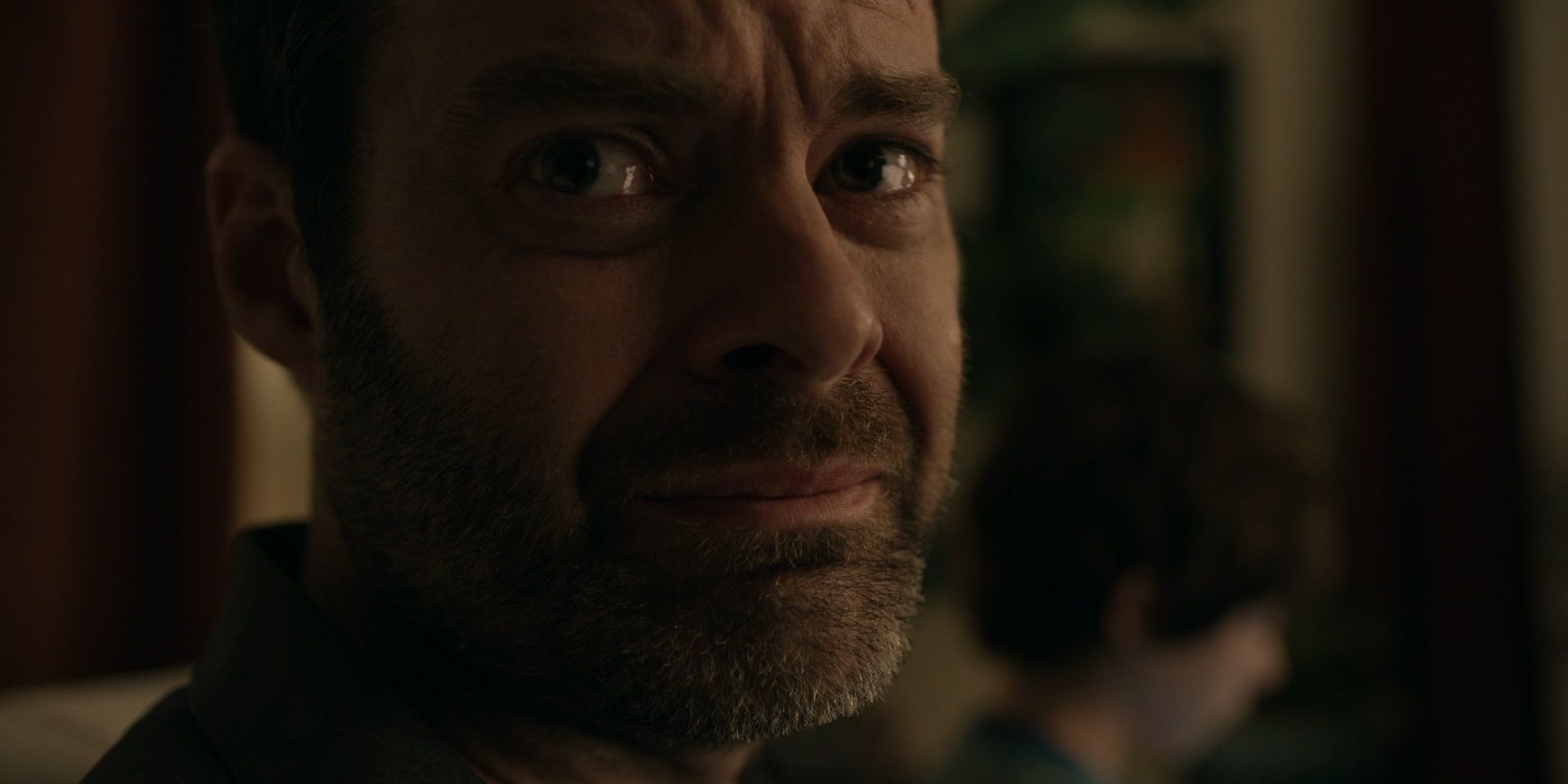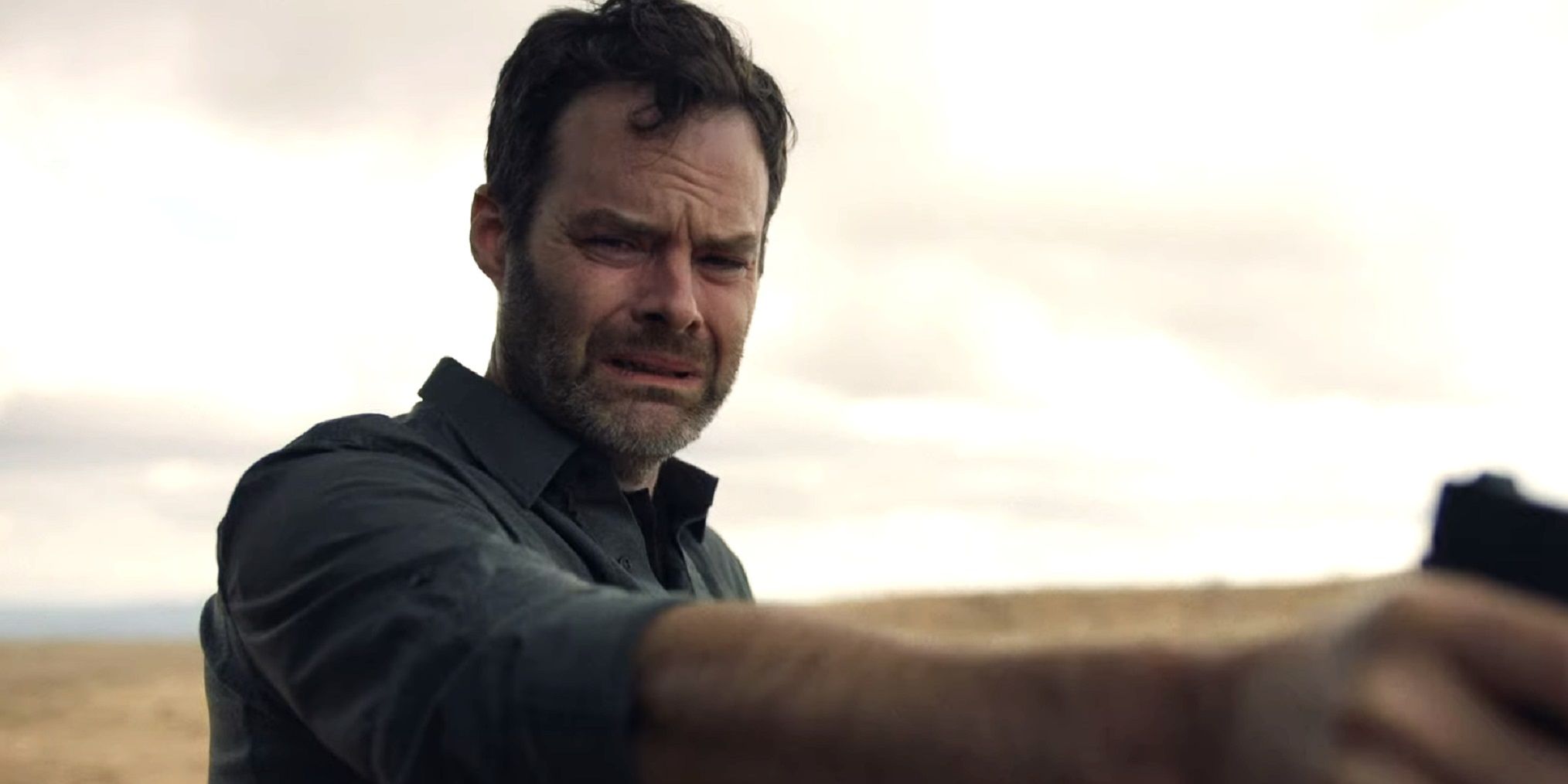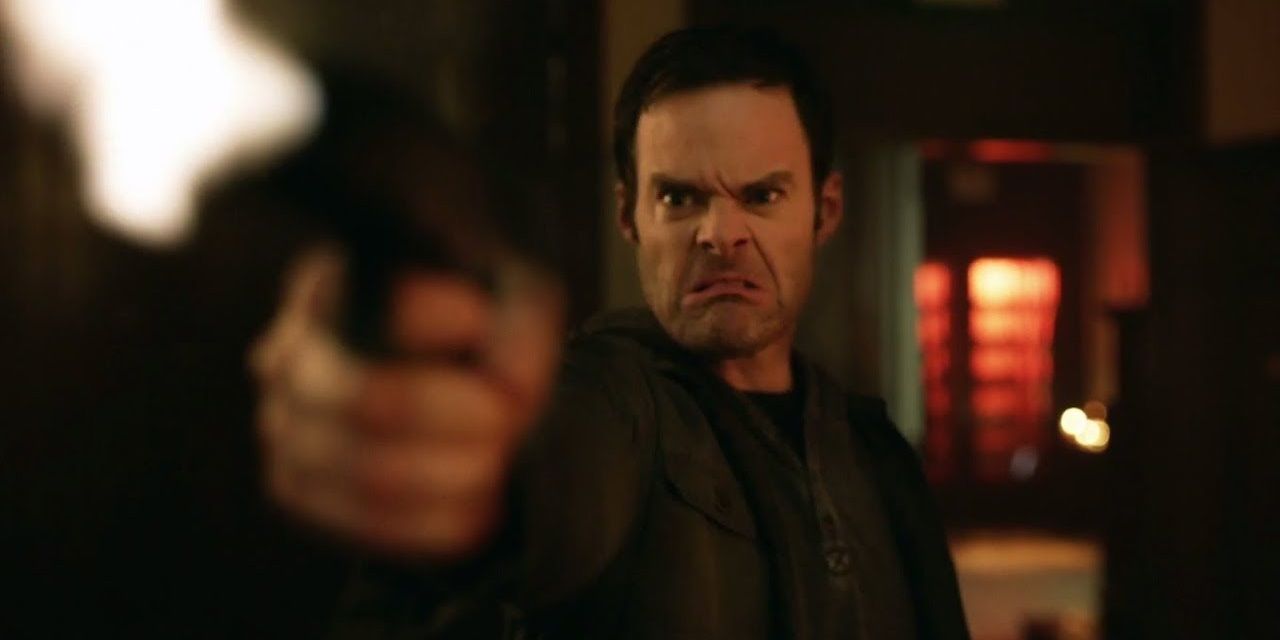Bill Hader’s groundbreaking hitman comedy Barry is back in full force with its long-awaited third season. When it first premiered, some snarky critics were skeptical that the show’s premise of an assassin pursuing a career as an actor could be stretched to a full half-hour episode, let alone a whole series. But those critics were quickly won over by one of the best shows on television – which manages to be a laugh-out-loud pitch-black comedy, a heart-wrenching drama, and an intense psychological thriller all at once – and have been singing its praises ever since. Three seasons in, Barry is stronger than ever.
The jaw-dropping opening scene of the premiere episode, “forgiving jeff,” introduced both the new season’s theme of forgiveness and the much darker version of Barry Berkman reeling from his blood-drenched breakdown at the monastery. Not only has Barry returned to killing people for money; he’s colder than ever. When one of his clients decides to call off a hit at the last minute because the target’s apology is sincere enough, Barry callously shoots them both dead – not exactly the actions of a man who deserves to be forgiven.
As Barry begins to hallucinate gunshot wounds in the foreheads of the people he cares about, the guilt of killing weighs on him once again. He approaches NoHo Hank on his deck in the middle of the night with a casual “Hey, man,” to seek forgiveness for all the bloodshed. Hank tells Barry that forgiveness has to be earned, and this sentiment sticks with him. He repeats this wisdom to Gene Cousineau while holding him at gunpoint in the desert, at which point Gene bluntly (and rightly) tells him to “start f****** earning it!” But he might be too far gone to earn forgiveness.
Is Barry Too Far Gone?
Storytelling is all about a character pursuing a goal. “forgiving jeff” made it clear that Barry’s goal is to be forgiven by the people he’s wronged – particularly Mr. Cousineau for murdering his girlfriend, Detective Moss, when she realized he was a killer. But, after the season premiere focused on Barry’s quest for forgiveness, the second episode focused on his inability to earn it. From yelling at Sally to obsessively stalking a terrified Gene through the streets of Los Angeles, Barry continually proved in the second episode – “limonada” – that he’s a psychopath beyond redemption.
Throughout the first two seasons, Barry made conscious efforts to be a better person. He truly wanted to give up killing and pursue a career as an actor, but he was always held back by Fuches. The third season is perhaps the darkest yet, because Fuches is out of the picture and an increasingly disillusioned Barry is picking up his own hits to make money. He’s barely trying to be a functional human being anymore, let alone a good person. He buys flowers for his girlfriend because that’s what he’s supposed to do, not because he genuinely wants to surprise her with a gift.
At the beginning of “limonada,” a deranged, narrow-minded Barry is convinced that he can earn Gene’s forgiveness if he can make his dreams come true and launch his acting career. So, he drives around L.A. with Gene locked in the trunk, knocking on casting agents’ doors, trying to make it happen. The longer it takes Barry to get Gene a part, the emptier the gesture feels. Landing Gene an acting job won’t change the fact that the love of his life was needlessly killed.
The Monastery Massacre Was Barry’s Breaking Point
Barry’s dark turn in season 3 follows on from the shocking monastery massacre in the season 2 finale. In a bid to kill Fuches, Barry slaughtered a building full of gangsters – including the ones he trained to shoot. This massacre seems to have been Barry’s breaking point. Throughout the series, the writers have outlined the key moments that chipped away at Barry’s humanity: primarily when he was in the Marines and got away with killing an innocent civilian that he thought had shot his friend, and when he killed Detective Moss for figuring out his double life. But the monastery massacre seems to be the straw that broke the camel’s back.
By the end of “limonada,” Barry has managed to secure an acting role for Gene. But the fact that it’s a background part with no lines hammers home the disparity between the depravity of Barry’s crime (and the enormity of the emotional toll it took on Gene) and the weakness of his apology gesture. Within minutes of fulfilling his feeble good deed, Barry is threatening to kill Gene’s son and grandson to keep him from calling the cops. In the creepy final scene, Barry forces Gene to tell him he loves him.
The show has telegraphed from the beginning that Barry is an irredeemable monster. He’s a self-loathing monster, but he’s still a monster by nature. The writers of this show always have something totally unexpected up their sleeve, so it’s possible that Barry will earn redemption by the end of the series. But, at least in his initial attempts, he’s going about it all wrong.



